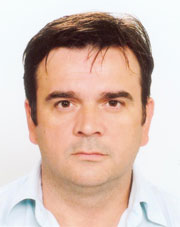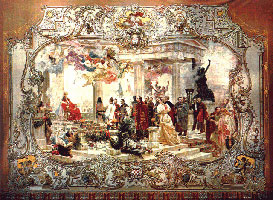
Ivan Bulić, PhD
He was born in Podgradina on 9 April 1969, educated in Sinj. In 1991 he became a history student on the Faculty of Humanities and Social Sciences in Zagreb. Before graduating in 1999, he was honored for volunteering in the Croatian War of Independence. He earned his PhD with a dissertation ˝Ivan Skerlecz Lomnički 1913-1917. The Royal Commissioner and Croatian ban˝ at the mentioned faculty. He has become an assistant professor and a research associate, teaches at the Catholic University of Croatia and at the Centre for Croatian Studies in Zagreb, and is the member of the Senate of the Catholic University of Croatia. The field of his research includes the world and Croatian history of the 19th and 20th century, especially the end of the Austro-Hungarian Monarchy and the union with the Kingdom of Serbia. Ivan Bulić has also participated in several scientific assemblies and has published a number of scientific papers.



